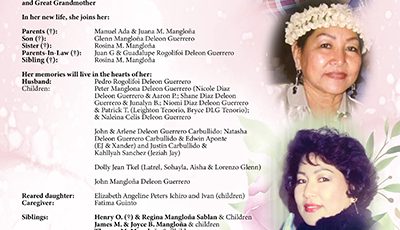Manglona gets another ‘good’ rating; Naraja and Govendo get ‘acceptable’
Associate Justice John A. Manglona got a “good” total average rating, while Superior Court Presiding Judge Robert C. Naraja and Associate Judge Kenneth L. Govendo each obtained an “acceptable” total average rating in the CNMI Bar Association’s evaluation of their performances on the bench.
According to the Bar Association’s results of the performance evaluation released to the media yesterday, Manglona obtained a high average rating of 4.06, while Naraja and Govendo got a similar average rating of 3.3.
“Good” or a total average of 4 means the magistrate often exceeds minimum standards of performance.
“Acceptable” or a total average of 3 means the magistrate meets minimum standards of performance.
The other ratings are excellent, deficient, and unacceptable.
“Excellent” or a total average of 5 means the magistrate consistently exceeds minimum standards of performance.
“Deficient” or a total average of 2 means the magistrate does not always meet minimum standards of performance.
“Unacceptable” or a total average of 1 means the magistrate seldom meets minimum standards of performance.
The evaluation rated the magistrates based on the following criteria: experience, integrity, professional competence, judicial temperament, service to law/contribution to justice, preparation, attentiveness, control over proceedings, judicial management skills, courtesy, public disciplinary sanctions, and quality of opinions.
Manglona’s highest rating was 4.4 for courtesy; his lowest was 3.75 for public disciplinary sanctions.
Naraja’s highest rating was 3.8 for courtesy; his lowest was 2.08 for professional competence.
Govendo’s highest rating was 3.9 for experience; his lowest was 2.8 for judicial temperament.
Bar Association president Maya B. Kara already informed the magistrates about the results. She also provided a copy of the results to Gov. Eloy S. Inos, Lt. Gov. Jude U. Hofschneider, Senate President Ralph DLG. Torres, and House Speaker Joseph P. Deleon Guerrero.
Kara said the Bar Association established in 2002 a mechanism by which nominees for judicial appointment or retention may be evaluated by the association.
Kara said the association invited its active members last Sept. 25 to confidentially evaluate Manglona, Naraja, and Govendo, with respect to their individual qualifications for retention in judicial office. Kara said members had until Oct. 20, 2014, to respond to the survey.
The evaluation, she said, is based on the American Bar Association’s May 2000 report entitled “Standards on State Judicial Selection.”
Kara said the CNMI Bar Association has 200 active members, about 120 of whom primarily practice law in the Commonwealth.
Of those 120 active CNMI-based lawyers, about 40 are employees of the government in various capacities, she said.
Kara said 30 active CNMI-based Bar members timely submitted the evaluation forms.
Justice Manglona and his wife, U.S. District Court for the NMI Chief Judge Ramona V. Manglona, are the first to obtain an impressive “good” rating among the magistrates who underwent performance evaluation by the CNMI Bar Association. The couple obtained the “good” rating during the performance evaluation in 2007.
According to records, except for the Manglona couple, all other magistrates who sought for retention on the bench got the “acceptable” total average rating.



























